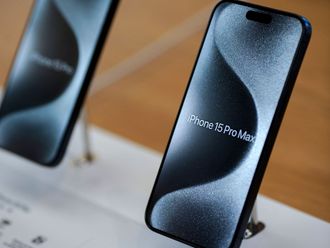When I first came to Dubai, a newsroom veteran slipped me, with all the skill and earnestness of a CIA operative, a folded piece of paper. He told me to keep it secret, and whatever else I did, not to write about it.
In the almost seven years since, I have done the latter several times. I stopped trying to do the former several years ago. What was on the slip of paper? A web address: hotspotshield.com
For those of you not familiar with Hot Spot, it’s a free Virtual Private Network, or VPN. For those of you still clueless, it’s software that lets you poke holes in the efforts of the local telecoms to block your access to free calls made over the internet, aka Skype, Viber, or Google Voice.
VPNs come in all shapes and sizes these days, although Hot Spot is still one of the most popular. It’s good for a number of other functions, such as shielding any data you send over the Internet from prying eyes. Since VPNs also can give you a US internet protocol (IP) address, you could fool American media sites into thinking you are actually in the US, a practice that is helpful if you want to see the latest episode of the Walking Dead, free and on demand.
For years VPNs have been the worst kept secret in the Emirate. Expats all seem to know about them, even if they don’t use them. It’s certainly one of the reasons that Skype usage, despite a ban, has been so consistently high in the UAE. (At the time I write this, Skype is not being blocked but neither has there been an announcement that it’s now legitimate, either).
For the record, Etisalat and du started blocking access to most VPN websites several years ago, although that certainly didn’t seem to stop anyone from getting a copy.
Inconsistent
Now, I have spoken to a few expats over the last few days that claim they have never been blocked from using Skype. That’s probably because so many people bring Skype into the UAE with them, either on their mobile phones or computers, where the software comes pre-installed. If you have access to an iTunes or Play account outside the UAE that has no restrictions on Skype, which usually requires a credit card issued from a bank in foreign country, you can also get the app that way. The UAE’s block on Skype has always applied to website, but seems to have been inconsistently applied to the Skype application itself.
It’s also worth noting that Microsoft’s purchase of Skype in 2011 also seems to have pushed the technology further into the limelight, and perhaps has had an influence on the unblocking of the site here in the UAE. As usual, no one wants to talk about it on the record. But I will point out that Viber, a direct competitor of Skype, is still blocked.
But with the unblocking of Skype I have to wonder if the days of VPN are over. Paranoid IT types who think the world is trying to break into their systems will always love it, but the number of uses for VPNs seem to be falling away.
You can no longer use a VPN to log into Google’s US apps store. Last year you could use one to download apps that weren’t available in the Middle East, but since then Google has gotten smart. The company now records the telecom network you use, which means that my Samsung Note II is listed as an etisalat phone, which means as far as Google is concerned, regardless of where I actually am, I’m in the UAE.
Threat to security
Amazon also has begun to use similar methods, although they do allow for ways around the block, such as paying with a credit card from a US bank and having a US-based IP address.
VPN is still an essential part of the BlackBerry communication system, and while that made big headlines some months ago due its perceived threats to security, having a VPN hasn’t done anything to help BlackBerry’s recent inability to claw its way back into competition with Apple and Samsung.
Still, I doubt that the consumer use of VPNs will go the way of the dodo and the zip disk. There is still the Walking Dead for example, and until US media companies find a better way of making media accessible to the world, a US ip-address will always be in demand.










